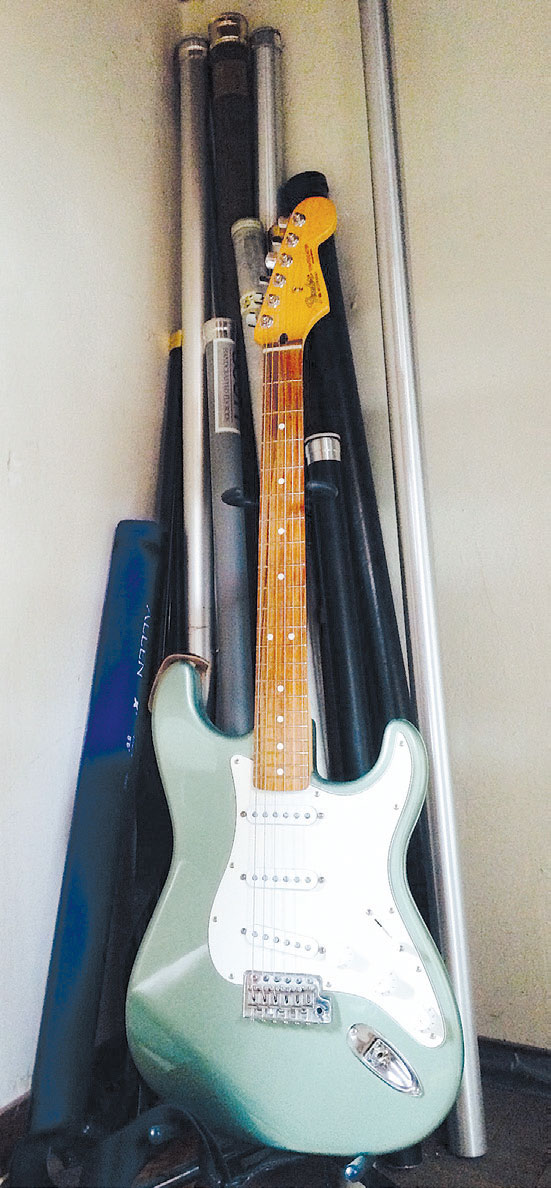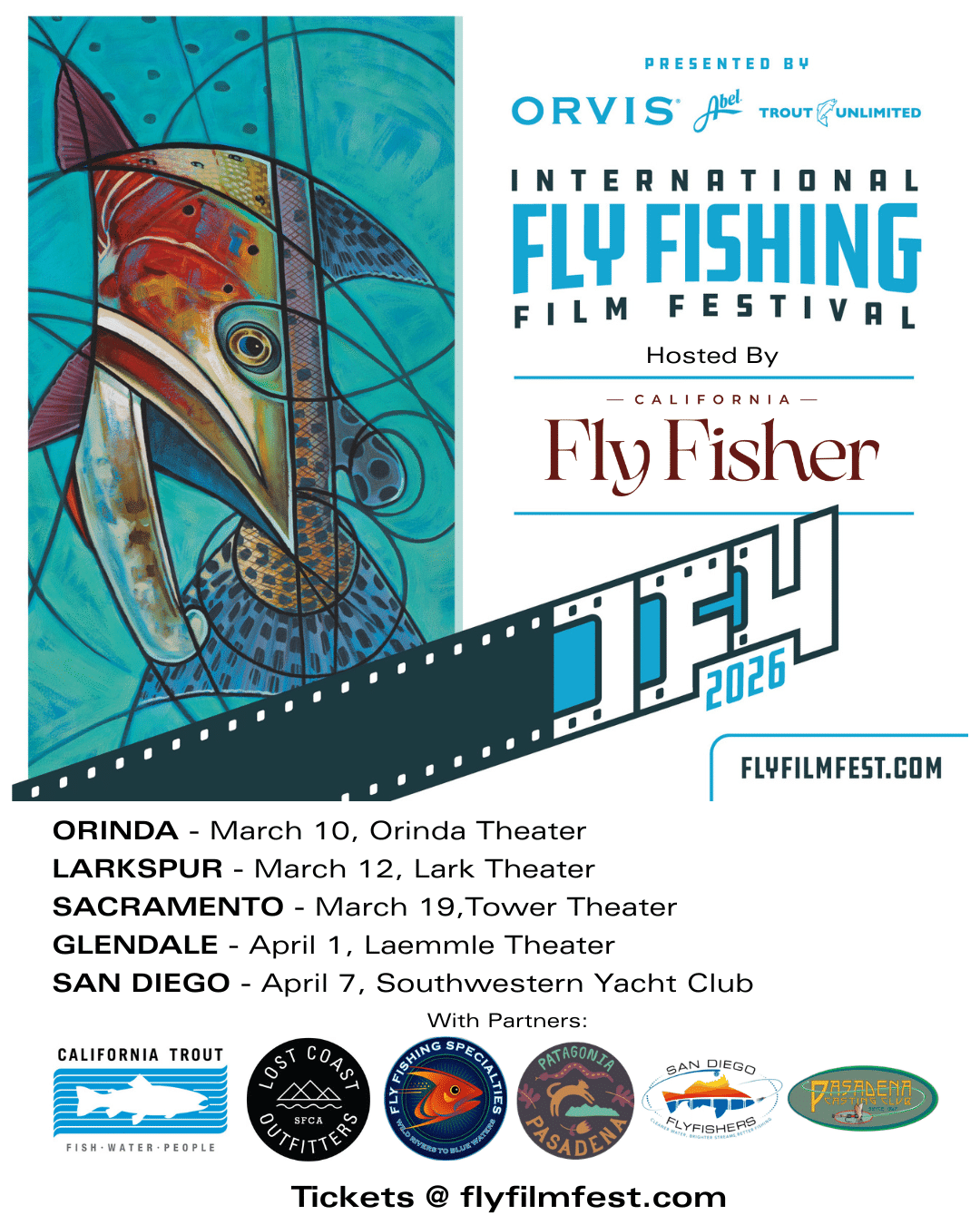The world’s most popular fly-fishing video was filmed in South Korea. It shows a lone fly fisherman catching carp in a river channel in front of an elevated highway. Traffic at times seems to be moving slower than the current. We glimpse a city skyline in the background and what looks like a highrise or an elevated car park. It is one of the most beautiful fishing videos ever made.
In part, this is because of the elegance of the fly casting, much of it filmed in slow motion. And certainly the play of sunlight and shadow on the water supplies a lot of the magic. But mostly it is because of the music.
The music we hear is “The Ludlows,” from the motion picture Legends of the Fall. It was composed by James Horner. The theme is introduced by a piano, but soon the strings are swelling to bursting, as if the orchestra is playing under starlight at the Hollywood Bowl. It’s pure David O. Selznick. Like all good film music, it delivers rich melodies and a big emotional payoff.
It has nearly 1.3 million hits on YouTube. To date, 743 people have been so moved by what they saw that they took the time to post their comments and pour out what was in their hearts.
I doubt that would have been the case if the filmmaker had decided to crank up the sounds with a garage band that played like monkeys howling for evolution. But you never know. Both decibel and testosterone levels are on the rise. Half the fishing videos out there seem to be in hard-rock mode. At least the more professionally produced ones are. Most fishing content is just amateurs posting what they like on YouTube. But the glossier offerings are commercially sponsored productions that market fly fishing as an “extreme sport.” And it has a soundtrack. A high-energy, electronically amplified pulse is certainly the driving beat behind The Fly Fishing Film Tour. This rolling film festival features high-quality art that makes up for every crappy fishing video you’ve ever endured. Waterproof high-definition cameras, aerial photography, bravura direction, and virtuosic film editing has us rooting for young anglers who are scaling the ramparts of the sport. The young turks are completely balls to the wall, and they take no prisoners. I don’t know if I’m watching A River Runs Through It or Triumph of the Will.
This is extreme fly fishing in all its glory. And you have to admire its panache, although I don’t know that there’s that much danger in a roll cast. A whole new generation of action junkies is looking for the next big fix in the Great Outdoors. They’ve discovered that fly fishing is a rush, and not the lame sport of retired businessmen. Followers of extreme sports are putting down their surfboards and snowboards and picking up fly rods. They’re surfing the Net for the next big catch, the newest and coolest destination, fly patterns, tackle, and apparel. They’re stoked and pumping up the volume. They’re taking names and kicking ass. God knows what will happen if they discover bird-watching.
And I’m all for it. I appreciate their spirit of adventure. I’m in awe of their technique. I like their rebel attitude. It’s way countercultural and in your face. And clearly, they’re doing it out of love. I can’t say it’s the sport I’ve known all these years. Or the music I prefer. But cranking up the tunes till the windows break seems made for all that excitement and verve.
I’ve always been curious about the kinds of music people have chosen to score their fishing videos. Especially the ones who don’t even use music. Where the only thing you can hear is the wind. Rock was the soundtrack to my adolescence. And I am now at the age of rock musicians who are nostalgia acts. But forgive me if I take a pass on loud music as the anthem of fly fishing. At least when it comes to the comfort and solace of trout streams. (Tarpon fishing might be another story.) I have nothing against pop music, other than its omnipresence in our culture, which threatens to reduce the whole world to a simple-minded backbeat. But reverb and electronic distortion seem wrong for scenes that are mostly pastoral in nature. A gentle spring creek hardly needs a boost from a Marshall amp. No sound reminiscent of the natural world has ever emerged from a wawa pedal or a wang bar. A day fishing on the Henrys Fork rarely puts me in a mood for Altamont.
Flowing waters seem to call for naturally acoustic sounds — a Martin guitar, or the banjo picking of the Deliverance boy. String and fiddle music migrated from Britain to the hills and hollows of America, just as fly fishing did. “There are songs in those hills that collectors have never put on tape,” Lewis tells Ed in James Dickey’s famous novel, right before that awful canoe ride. A nurse once asked jazz drummer Buddy Rich, who was on his deathbed, if there was anything that was making him uncomfortable. “Country music,” he said.
Speaking of jazz, I don’t believe I’ve ever heard any on a fly-fishing video. That urban soundscape might be a bit too out there for the countryside, although “heroin music” is certainly “the contemplative man’s recreation.” I can picture Izaak Walton on the nod, dreaming of dairymaids. For the record: drugs have never hurt music. Killed a lot of musicians. But never once hurt the music. Soundwise, it might be one of the more interesting things to have happened to it in a hundred years. Just listen to Neil Young’s “Tired Eyes.” Or Chet Baker’s “Deep in a Dream.” Rap and hip-hop also might be an odd fit for anything as bucolic as fishing. Although scenes of fly fishers on the Los Angeles River are “Straight Outta Compton.”
Frank Zappa once said, “All the good music has already been written by people with wigs and stuff.” Which brings us to classical music. I’ve heard chamber music used to nice effect in a few fishing videos. And I’ve had a few “classical” moments on the water myself. Like the time a five-pound trout made my line hum like the E-string on Joshua Bell’s violin. I’ve heard sounds coming out of gentle streams that were like bagatelles. And musical river tones that put me in mind of Yo-Yo Ma playing his three-centuries-old Montagnana cello. Handel wrote “Water Music.” Schubert composed “The Trout Quintet.”
And classical music is all the rage these days in violent video games. So maybe extreme fly fishers will adopt the sonata allegro form. Gamers aren’t aware they’re listening to classical tunes. Even though they wouldn’t be caught dead at Symphony Hall. “Clair de Lune” turns up as an interlude in the horror game The Evil Within. (And Debussy will never be the same.) Beethoven’s “Moonlight Sonata” is heard on Resident Evil. In Fallout 3, the Soil Stradivarius (pronounced swal), a violin owned and played by Itzhak Perlman, is to be recovered by gamers who make it into Vault 92, an underground bunker, where the world’s great musical treasures have been stored after a nuclear holocaust. After a day of video gaming, I have to listen to Mozart for Babies to raise my IQ.
If full-mode German Romanticism works for online shooter games, there’s no reason why Wagner’s leitmotifs wouldn’t do the same for ripping lips and counting coup on the Madison River. And after you “drain the pool” you can invade Poland. My advice: avoid the constipated grandeur of Bruckner adagios if you want to keep the action rolling.
I probably don’t have to warn fun-loving adrenaline junkies to stay away from atonality, twelve-tone serialism, “modernism” or anything else that the Grove Dictionary of Music might define as “music nobody can whistle.”
But Continental music dating from the age of powdered wigs and snuff boxes might feel a little out of place in a country where people speak “in plain American which cats and dogs can read.” What’s called for is a more down-home vernacular. Rural scenes seem made for rural sounds, fingerpicking guitars and mandolins, with bluegrass notes plucked out of the air as sweet and clear as creek water. Now that’s music to fish by.
Meanwhile, the beat goes on — louder than the action in that totally awesome Steelhead and Spines video produced by the Provo Brothers. Have you seen it? These two brothers ski down a massif on a remote Alaskan mountain range before bopping over to British Columbia for some steelhead fishing. Dude, it’s seriously sick!
But I’ll stick to sounds on fishing videos that give me a little less sensory overload. Acoustic music is more reflective of nature and the outdoors. There’s something in the tonal beauty of rivers and creeks and in the ocean that makes me think of natural sounds. People who like bamboo rods are said to prefer acoustic instruments. There’s something “organic” in them that reminds us of the elegance in nature.
I know this falls on deaf ears. What the hell, I’m a dinosaur. I believe that “The Day the Music Died” was on March 26, 1827. There’s no reason for anyone to listen to me. People should play the music they like. And they do. Fifty thousand anglers following the fishing film tour can’t be wrong.
But you’d be surprised what you might hear if you “study to be quiet.” For one thing, there’s birdsong, which is and isn’t music, has no known scale, but tone and rhythm and a kind of overflowing joy.


















